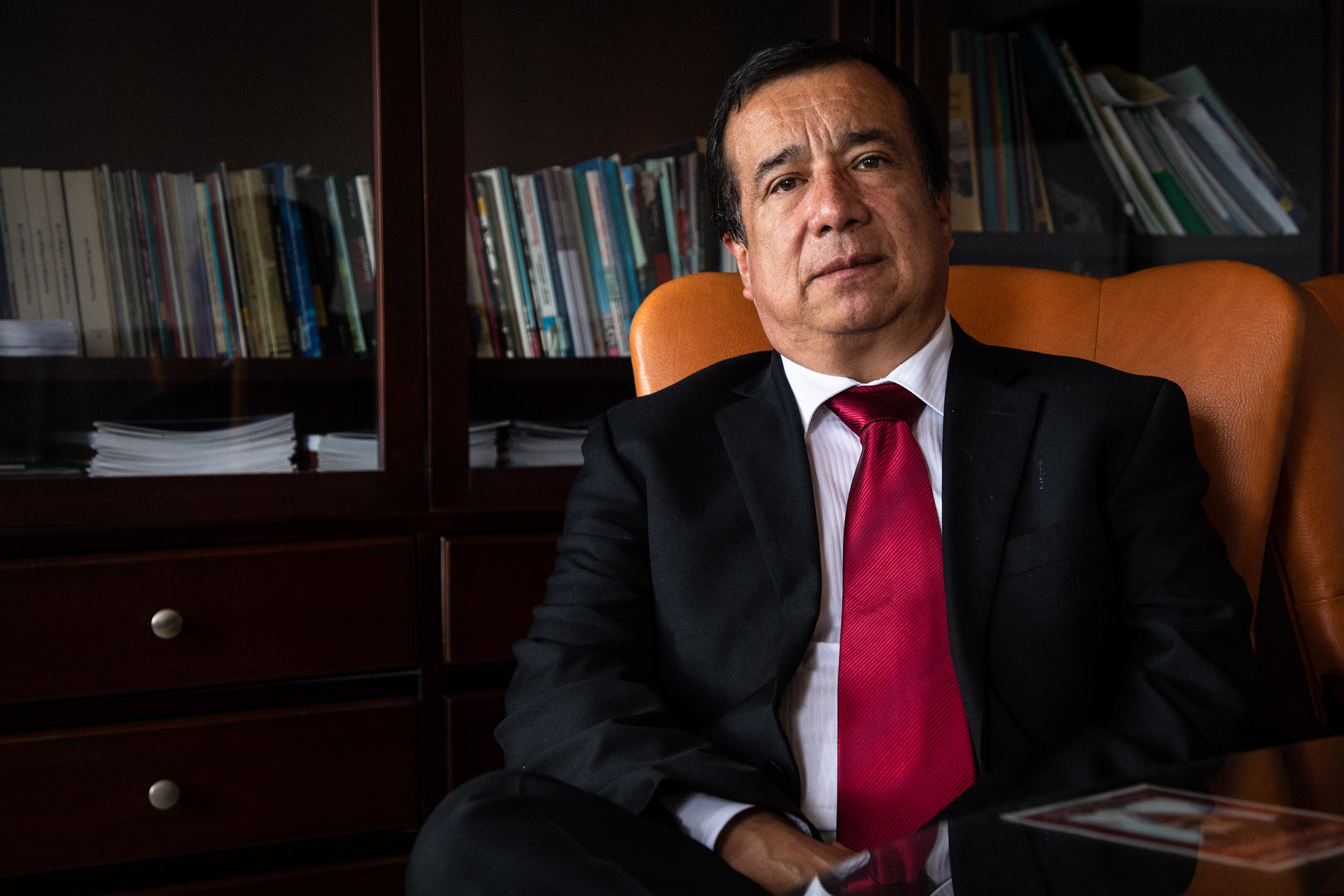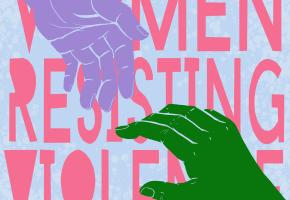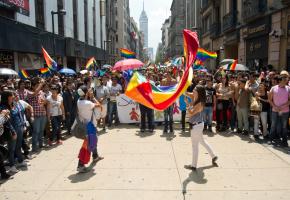Álvaro Uribe Vélez served as the 31st President of Colombia from 2002 to 2010, in an administration defined by its military campaign against the Revolutionary Armed Forces of Colombia (FARC). However, amonst the many allegations of human rights abuses and crimes under the Uribe regime it is one case that led the Supreme Court to request the ex-president’s arrest.
The case, brought by human rights lawyer Reinaldo Villalba, rests on allegations of witness tampering and fraud, which began in 2012, when the former president accused senator Iván Cepeda of associating him with paramilitary groups. Cepeda’s investigation was deemed legitimate in 2018, with the court finding Uribe’s allies guilty of witness tampering, consisting of forced retraction of statements against the former president and his brother, who is also on trial.
Claims that the brothers were linked to the creation of a paramilitary bloc in the Department of Antioquía have led to further pressure on witnesses from third parties. After senator Iván Cepeda brought incriminating statements from two paramilitaries to the Attorney General’s Office, Uribe and his supporters discredited the court and alleged unjust prosecution.
In addition, Mr Franklin Castañeda, President of the Committee of Solidarity with Political Prisoners (CSPP), was accused by Senator Álvaro Uribe Vélez of bribing witnesses who had given evidence before the Supreme Court of Justice.
In February 2018 the Supreme Court ruled that the CSPP had acted properly and on 24 October the CSPP filed a lawsuit for slander and harassment against Álvaro Uribe Vélez and others. CCAJAR and Villalba are still awaiting the decision as to whether there is enough evidence to bring Uribe to trial. Uribe has denied all allegations against him.
Risks faced by lawyers in Colombia
Villalba manages penal and national litigation for The José Alvear Restrepo Lawyers' Collective (CCAJAR), which represents victims of serious human rights violations. He has been vilified by the authorities and characterised as a defender of terrorism and an auxiliary of guerrilla forces, particularly since his work representing Senator Iván Cepeda.
‘Managing a case of this kind generates a huge potential for risk and danger and we are extremely aware of that.’
Various witnesses have been murdered with impunity for their work on the trial of Santiago Uribe, the former president’s brother. The lawyer reported that ‘Senator Iván Cepeda Castro has had strangers lurking nearby his apartment and people who work with him have been attacked on social media by members of Álvaro Uribe Vélez’s political party.’
The UN Basic Principles on the Role of Lawyers states that ‘Governments shall ensure that lawyers are able to perform all of their professional functions without intimidation, hindrance, harassment or improper interference.’ British lawyers are fortunate enough to be able to return home from the courtroom with peace of mind. Those in Colombia are not so lucky, and some of may not return.
The “12 apostles” trial has seen Santiago Uribe charged with the crimes of aggravated homicide and aggravated criminal association as co-founder of a paramilitary group. Daniel Prado Albarracín is another lawyer working on behalf of the victims in this case, whom PBI also supports. Last year, international advocacy organisation The Alliance for Lawyers at Risk wrote a letter to president of Colombia expressing their concern about the proliferation of false public statements which might undermine the trial and put Mr Albarrcin’s safety at risk.
CCAJAR and the rule of law
Villalba has been a member of CCAJAR for 27 years. CCAJAR is a Colombian non-governmental human rights organisation, which aims to contribute to the fight against impunity and the construction of a just and equitable society. The organisation is recognised nationally and internationally for representing emblematic cases of human rights violations in Colombia, both within the Colombian justice system and before the Inter-American System of Human Rights. The high profile nature of the cases it takes on has exposed the organisation to sustained attacks, threats and intimidation since its foundation.
According to information published on 1 May by the Colombian magazine Semana, CCAJAR lawyers comprised some of the 130 individuals subject to “profiling and surveillance” from parts of the Colombian National Army. This has been linked to the collective’s representation of victims of extrajudicial executions in cases against retired generals.
According to Villalba, these tactics have been used by senior government officials since the organisation was founded, and throughout Uribe’s premiership. The former president ‘got his intelligence body to attack human rights defenders in general’, he claims ‘and specifically to attack the José Alvear Restrepo Lawyers Collective.’ The latter has led to the former president’s trial at the Accusations Committee, which has yet to give its verdict. Impunity in Colombia is rife, meaning that a hearing has still not taken place. This is one of more than 200 such cases with the committee, in addition to those with the public prosecutor and even more in the hands of the Supreme Court.
How do you think the International community views whats going on in Colombia, I ask?
‘As a result of the peace process, parts of the international community thinks international presence in Colombia is no longer necessary or that Colombia doesn’t need international observation - which is so valuable in this country. So suddenly we do feel a bit abandoned’, Villalba answers
‘I would like to say to the international community that in Colombia human rights defenders continue to be killed, that in Colombia social leaders continue to be killed, that in Colombia in the past two years over 300 social leaders have been murdered - people who work tirelessly in their regions for the protection and guarantee of their rights, for the defence of their land. The Colombian authorities have not known how to respond to avoid these crimes and put an end to these crimes. Every year the number of murdered human rights defenders and social leaders increases.’
Villalba makes links between the tragic history of the country, which suffered a 54 year civil war, and the current situation for human rights defenders. ‘We don’t want a repeat of the past, when one political party, the Patriotic Union, was practically wiped out. More than 5000 of its members and supporters were killed. Every day social leaders are being killed here.’
‘Although the situation was already very serious, since Iván Duque became president, murders of social leaders have increased. For that reason, international accompaniment is still very important today. We have to continue to prevent social leaders from ending up in cemeteries.’
Peace Brigades International has been supporting CCAJAR with protective accompaniment since 1995. ‘The true dimension and importance of this accompaniment cannot be fully appreciated’. Said Villabla ‘It not only gives us the chance to go to areas where we could hardly ever go without this support, but it also gives us confidence to carry on with our work. And it gives more confidence to our families as well, who feel more secure when we are accompanied.’
PBI continues to accompany Villalba, CCAJAR and countless human rights defenders fighting for the rule of law all over the world. They represent a fundamental building block for justice and accountability. The current trend shows an increase in episodes of murder, harassment, threats and political stigmatisation of human rights defenders. It needs to be reversed as a matter of urgency. There must be a fundamental change in the public narrative and a recognition of their true value to society.
For more info please visit https://peacebrigades.org.uk
















